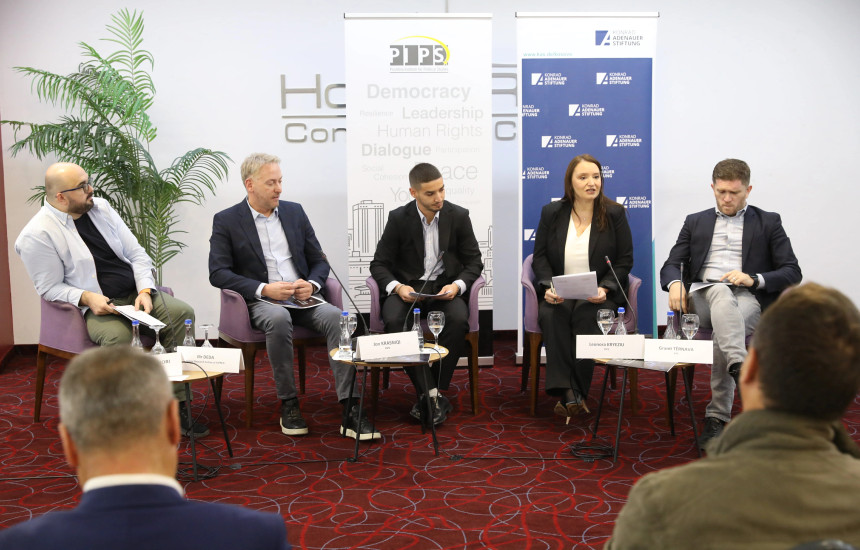The Pristina Institute for Political Studies (PIPS) has warned that Kosovo’s relationship with its key strategic ally, the United States, was “seriously tested” throughout 2024, citing unilateral government decisions and lack of political coordination.
The findings were presented in the annual report “Yearbook of Kosovo’s Foreign Policy 2024–2025: Challenges and the Road Ahead.”
Lack of Coordination with Washington
According to PIPS researcher Jon Krasniqi, tensions were primarily fueled by the Kosovo Government’s unilateral moves regarding the north of Kosovo and its approach to the dialogue with Serbia. These decisions, he argued, resulted in constant friction with Washington and “nonstop criticism” from U.S. officials.
Krasniqi also pointed out that the failure to appoint a new U.S. ambassador in Pristina after the departure of Jeff Hovenier could be interpreted as a signal of reduced priority for Kosovo in U.S. foreign policy.
“Kosovo risks its relationship with its strategic partner. The absence of an ambassador in a sensitive period is telling,” Krasniqi emphasized.
Relations with European Allies
The report further highlights:
- Germany has maintained consistent support for Kosovo’s Euro-Atlantic integration, though often conditioned on progress in the dialogue with Serbia.
- The United Kingdom’s role has been centered mainly on security cooperation.
- Albania–Kosovo ties have shown signs of weakening political communication during the government’s four-year term, despite strong social and economic bonds.
- Relations with North Macedonia were described as “the most successful and constructive” in 2024.
Limited Diplomatic Progress
PIPS noted that progress in international recognitions remains limited, with only three new recognitions in more than half a decade. Kosovo became an associate member of the Parliamentary Assembly in March 2024, but the dialogue with Serbia has stagnated since the Banjska incident.
Krasniqi stressed that without addressing Banjska, “there will be no progress in the Kosovo–Serbia dialogue.”
Voices of Concern
- Muhamet Brajshori, former Deputy Foreign Minister, criticized Kosovo’s passive diplomacy, claiming the country has “lost its strategic compass” in foreign policy.
- Ilir Deda from KIPRED warned that 2025 may be remembered as a lost year for Kosovo’s international standing, arguing that even a new government would struggle to recover the damage done.
The report also reviews Kosovo’s relations with Turkey, Croatia, Greece, and other regional and international actors.







